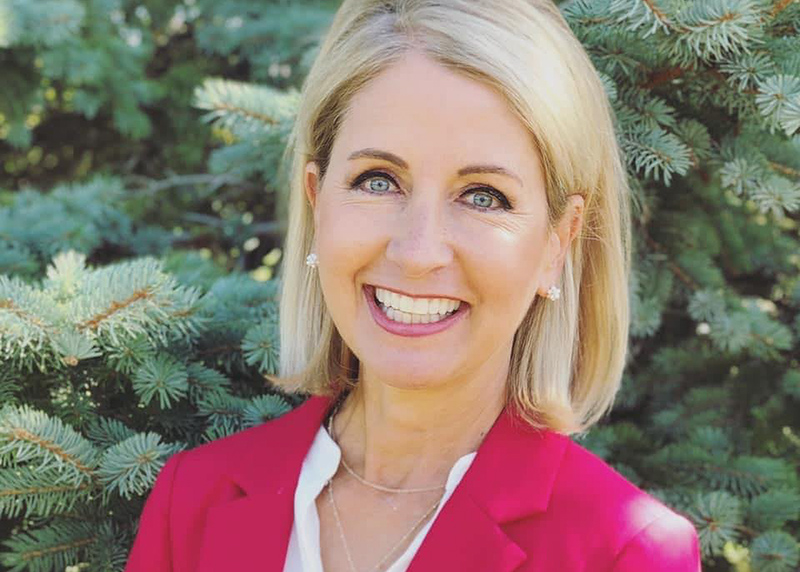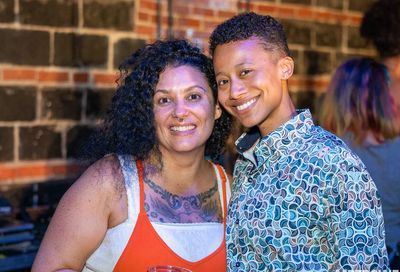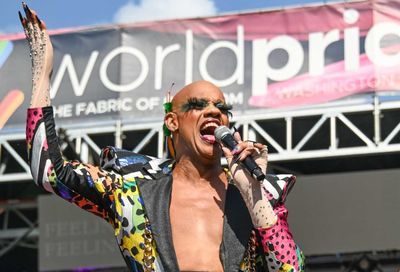Forgiving Bill Clinton
Former president's DOMA turn gets mixed reaction – welcome to politics
Gay opinions on Bill Clinton were always mixed. On election night in 1992, Washington’s Shoreham Hotel – where gay activists had zapped the American Psychiatric Association 21 years earlier – saw Urvashi Vaid at the LGBT victory party crying “We did it! We did it!” while Michael Petrelis of ACT UP roamed the halls wearing an “Impeach Clinton” button.
So, naturally, when the former president last week urged the Supreme Court to overturn the Defense of Marriage Act that he signed into law in 1996, some cheered while others slammed his revisionism and failure to apologize.
Clinton wrote, “I know now that … the law is itself discriminatory.” Andrew Sullivan replied, “He knew it then of course too. But it’s churlish to cavil.” Elizabeth Birch, who led the Human Rights Campaign when DOMA was passed, was less forgiving:
“So why don’t I feel grateful? … I guess it is because, beyond signing the bill into law, the 1996 Clinton campaign decided to run ads on Christian radio bragging that DOMA had become the law of the land. I guess it is because … it still makes me sick that people like Harold Ickes … threatened to leave the ads on the air if I dared to claim victory for demanding they come down.”
I am glad that Birch corrected the record, but I also remember Sullivan slamming HRC as a wholly owned subsidiary of the Democratic Party. I appreciate the pragmatic choices Birch and her colleagues felt they had to make; but after so much willing service, it is strange to cry foul now. Some of us had already noticed Clinton’s tendency to retreat from a fight in the 1993 debate on gays in the military, so 1996 was a bit late for disillusionment – which Birch kept well hidden at the time.
Clinton is a particularly shameless politician, but Barack Obama is a politician too. His political calculus is applied to a society substantially changed since the Clinton era. Yet the calculation still rankles many activists, who demand a purity our system is not designed to produce.
Politicians cannot substitute for advocates. We needed Lyndon Johnson to push for the Voting Rights Act in 1965, but he needed John Lewis and Hosea Williams and the other marchers who faced police truncheons and tear gas on Bloody Sunday, as well as the reporters and news photographers covering the event. Activists prepare the way, planting seeds of progress often reaped by others.
The anger over Clinton’s lies and lack of leadership seems pointless now, like yelling at a ghost over an old wrong. I am more intrigued by the contrasting personalities. Clinton the extrovert worked us the way Teddy Pendergrass worked a concert audience. His seductions left us feeling foolish when reality dispelled the fantasy. Obama finds affirmation within himself, having been forced, as a young man caught between cultures, to construct his own identity. Many gay people recognize in his journey our own coming of age amid an absence of role models. Like Ralph Ellison’s fictional narrator, we had the gift, and the curse, of being invisible. We are survivors; we do not need validation from a politician.
On one hand, a subterranean sea of anger has fueled much productive activism. On the other, clinging to our familiar rage can trap us in the very outsider status we decry. We need an act of grace. For me it came from a sweet, brave man in a faraway city who helped me see through new eyes. That is love’s gift. In the end, back from the culture wars, the time comes to heal our wounds and build the new world that our love has shown us.
Survey the altered landscape. Boom times are coming.
Richard J. Rosendall is a writer and activist. He can be reached at rrosendall@starpower.net.
Support Metro Weekly’s Journalism
These are challenging times for news organizations. And yet it’s crucial we stay active and provide vital resources and information to both our local readers and the world. So won’t you please take a moment and consider supporting Metro Weekly with a membership? For as little as $5 a month, you can help ensure Metro Weekly magazine and MetroWeekly.com remain free, viable resources as we provide the best, most diverse, culturally-resonant LGBTQ coverage in both the D.C. region and around the world. Memberships come with exclusive perks and discounts, your own personal digital delivery of each week’s magazine (and an archive), access to our Member's Lounge when it launches this fall, and exclusive members-only items like Metro Weekly Membership Mugs and Tote Bags! Check out all our membership levels here and please join us today!
























